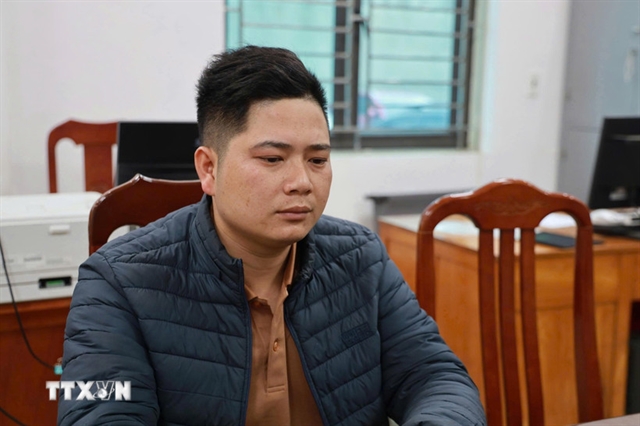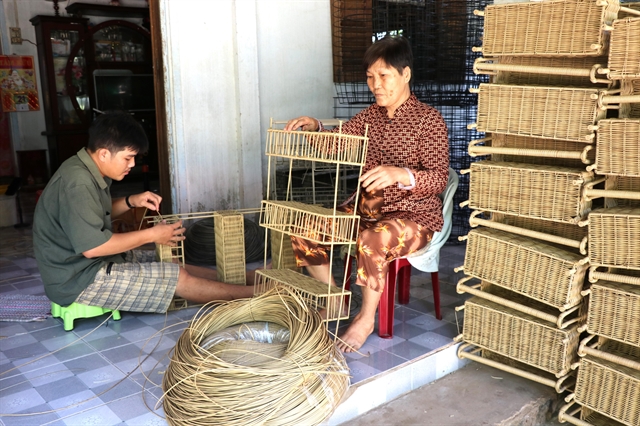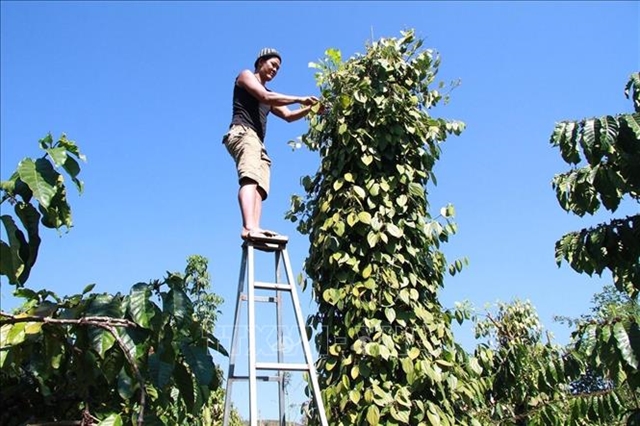 Life & Style
Life & Style

Vũ Ngọc Đãng won the Best Director award at the 20th National Film Festival in Đà Nẵng recently. The director spoke about his latest award and shared his personal views on Vietnamese cinema.
 |
Vũ Ngọc Đãng won the Best Director award at the 20th National Film Festival in Đà Nẵng recently. It was the second such award for Đãng, his first coming in 2012. Both awards were for the first and second parts of his Lost in Paradise, made six years apart in 2011 and 2017.
Lost in Paradise was the first “queer” feature film from Việt Nam to enter the Vancouver International Film Festival.
Đãng graduated in first place from the HCM Academy of Theatre and Cinema with a short film called Vợ Chồng Chuột (Mouse Couple). The film was selected to compete at the International Student Film Festival in Israel in 2001. He gained further popularity with his first motion picture, Những Cô Gái Chân Dài (Long-legged Girls), which fetched him the Silver Lotus at the 14th National Film Festival in 2004. The movie was a record box office hit, one of those that marked the emergence of Vietnamese cinema from a crisis at the end of 1990s.
His television series, like Bỗng Dưng Muốn Khóc (Suddenly Want to Cry); Tuyết Nhiệt Đới (Tropical Snow) and Vừa Đi Vừa Khóc (Walking Crying) have also been favoured by audiences.
The director spoke about his latest award and shared his personal views on Vietnamese cinema.
You won the Best Director award for Lost in Paradise, part 1. But the movie did not grab any award in other categories. How come?
It is normal. People who want to know why I was the best director among 16 competing movies at the festival should ask the jury panel. Personally, I think other directors who had movies competing at the festival were talented. It was a surprise to me when my name was announced. I had guessed that Lê Thanh Sơn, director of Jailbait, would be the winner. I liked the movie very much.
I liked the improvisational and professional way in which the movie was made. It is fair that Jailbait won many awards. I feel for its leading actor Kiều Minh Tuấn. His acted very well, but was not nominated for the best leading actor prize.
Why did you not attend the award ceremony this time?
It is not this time. I do not attend any award ceremony. I am really embarrassed to be on the stage to receive an award. I don’t know how to make a speech. I am also nervous about appearing on the red carpet, so I am rarely present in that crowd. I just come to my close colleagues’ film launching ceremony. I also fear flying and get carsick. So that’s why I didn’t attend the award ceremony. I respect the award and I think the national film festival is good for the profession and professionals who can have fun. I encourage artists to attend the festival.
The award makes me feel more confident. I work hard and my great effort is recognised.
There are not many directors who’ve won the best director award twice in a short time. Where do you see yourself among your peers?
When I made Lost in Paradise’s part 1, I was very energetic. I was worrying that I’m coming to a standstill. The award has been timely. But Jailbait is a kick for me. I got a shock when I watched the movie. It was really a slap on my face. It woke me up and told me that I am getting old and my way of making films is boring. If I don’t change I will be left behind.
Jailbait won the Gold Lotus for the best motion picture at the festival and it also reaches the highest turnover in Vietnamese cinema history. Is it a good sign of harmonising entertainment and art movies or do you think the jurors were being populist?
I think we are lucky to have a movie that is both a box-office hit and recognised by the profession. Titanic won 11 Academy Awards and chalked up US$2 billion.
What are your strength and weaknesses?
My strength is film directing and the weakness is script editing. I think that my films are always good in the first section, but not so good at the end. This year I attended several script editing courses, aiming to improve my skills.
Forgetting a failure or a victory, which is more difficult?
Always the failure. Forgetting a failure is much more difficult because it gets embedded in the heart for long time. I forget a win after three or four days. — VNS




